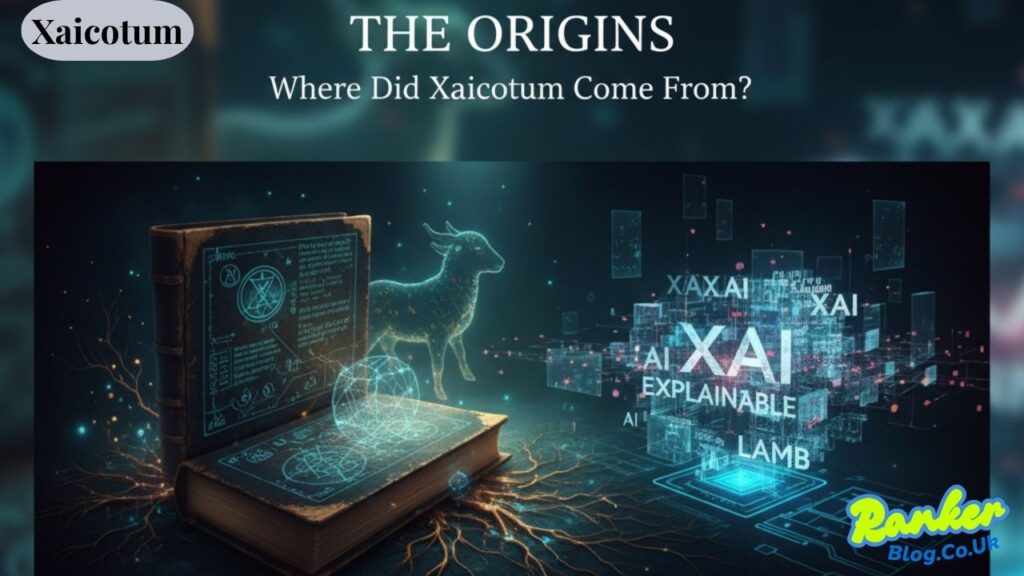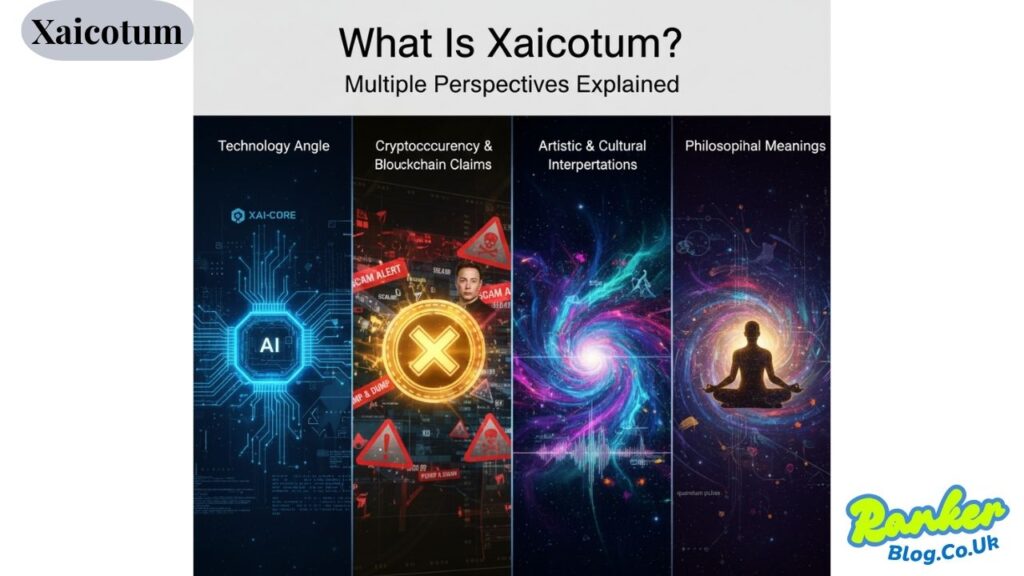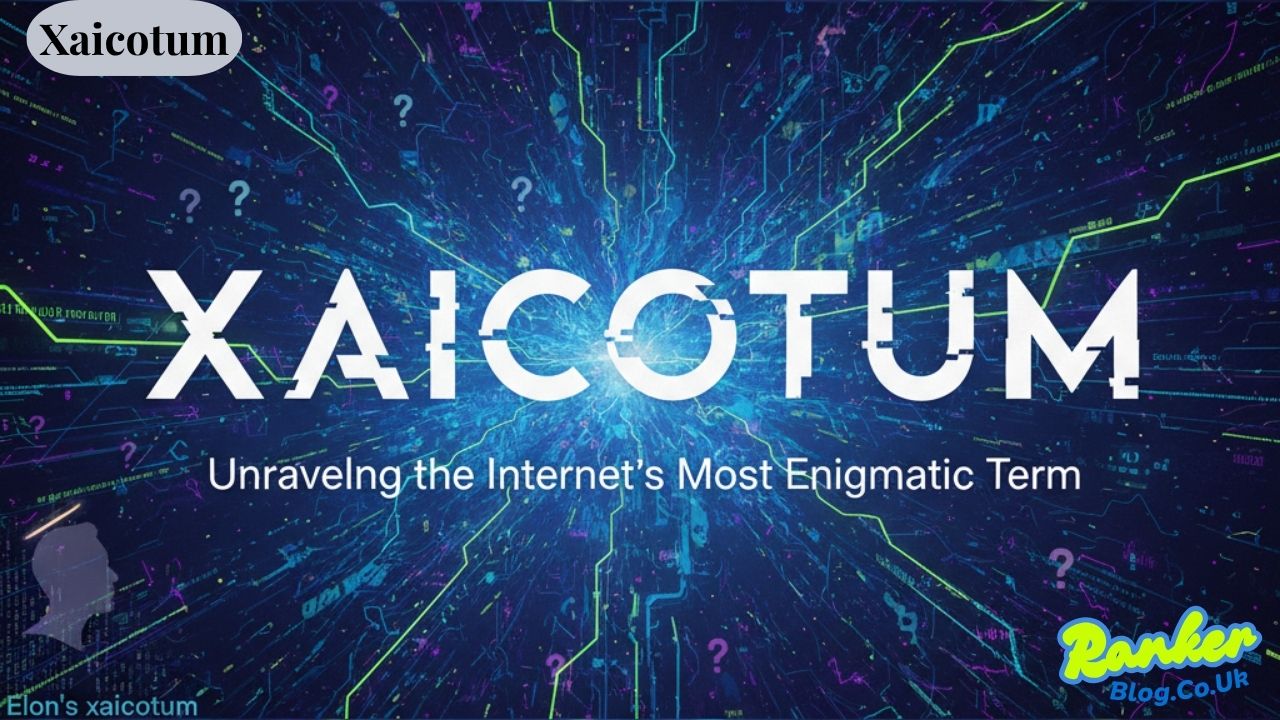Introduction: The Mystery That Has Everyone Talking
The digital world thrives on mysteries, and few have captured the collective imagination quite like xaicotum. This enigmatic term has been popping up across social media platforms, tech forums, and even in conversations about cutting-edge technology, leaving many to wonder: what exactly is this puzzling concept?
Unlike established terms that appear in dictionaries or academic journals, xaicotum exists in a peculiar space between technology, philosophy, and internet folklore. It’s a word that seems to mean everything and nothing simultaneously, depending on who’s discussing it and where the conversation takes place.
What makes this phenomenon particularly intriguing is its connection to various interpretations across different digital communities. Some view it as a technological breakthrough, others see it as an artistic movement, while skeptics point to potential scam operations using the term to lure unsuspecting individuals. The ambiguity surrounding xaicotum has only fueled curiosity, making it one of the internet’s most debated topics in recent times.
Perhaps most notably, the phrase “Elon’s xaicotum” has circulated widely, creating speculation about whether the tech mogul has any actual involvement with this mysterious concept or if his name is being used without authorization to generate hype.
The Origins: Where Did Xaicotum Come From?

Tracing the roots of xaicotum feels like piecing together fragments of an incomplete puzzle. Unlike words with clear etymological paths, this term appears to have emerged organically from various corners of the internet, with no single creator claiming ownership.
Linguistic Theories and Possible Connections
Several theories attempt to explain the construction of this unusual word. One popular interpretation suggests a connection to “XAI,” which stands for Explainable Artificial Intelligence in tech circles. This association makes sense given the term’s prevalence in discussions about emerging technologies and machine learning systems.
Another interesting angle points to the Basque word “xai,” which translates to “lamb” in English. While this connection might seem random at first glance, some enthusiasts believe it represents innocence or a new beginning—perhaps symbolizing humanity’s journey into uncharted technological territories.
The suffix “-cotum” remains particularly mysterious, with some suggesting it could be a constructed ending designed to give the word a scientific or ancient feel. This type of neologism creation isn’t unprecedented; the internet has birthed countless terms that blend linguistic elements from multiple sources to create something entirely new.
Historical and Mythological Speculation
More esoteric interpretations have emerged from communities interested in ancient texts and alternative knowledge systems. Some researchers claim to have found references in obscure Gnostic manuscripts, though these claims remain unverified and highly debatable.
Alchemical traditions have also been mentioned in connection with xaicotum, with some suggesting it represents a digital-age equivalent of transformation or transmutation. These interpretations align with broader trends of applying ancient mystical concepts to modern technological phenomena.
What’s fascinating is how these various origin stories coexist without any definitive answer emerging. In many ways, the mystery itself has become part of xaicotum’s identity, allowing different communities to project their own meanings onto this blank canvas of a term.
What Is Xaicotum? Multiple Perspectives Explained

Asking “what is xaicotum” yields remarkably different answers depending on who provides the response. This multiplicity of interpretations is both the term’s greatest strength and its most confusing aspect.
The Technology Angle
In tech-focused communities, discussions often frame xaicotum as a potential breakthrough in artificial intelligence or quantum computing. Some speculate it could be a codename for an experimental AI model that hasn’t been officially announced yet. Others suggest it might represent a new protocol for decentralized computing systems.
GitHub repositories and programming forums have mentioned “Xaicotum-core” and various protocols bearing the name, though many of these projects appear to be experimental or have limited documentation. The connection to explainable AI remains strong in these contexts, with enthusiasts suggesting xaicotum could represent a framework for making complex AI systems more transparent and understandable.
Cryptocurrency and Blockchain Claims
The crypto space has embraced xaicotum with varying degrees of legitimacy. Some genuine blockchain projects have incorporated the term, particularly those focused on privacy and zero-knowledge proof systems. However, this association has also attracted less scrupulous actors.
The proliferation of “Elon’s xaicotum” promotions across social media platforms has raised significant red flags. Many of these appear to be scam operations using the Tesla CEO’s name without authorization to create urgency and legitimacy around fraudulent investment schemes. These campaigns often feature bot-generated comments, look-alike news websites, and classic pump-and-dump tactics that have nothing to do with any legitimate project.
Artistic and Cultural Interpretations
Digital artists and electronic musicians have adopted xaicotum as a conceptual framework for exploring themes of emergence, chaos, and pattern recognition. Some describe it as “the emergent pattern in chaotic data”—a poetic way of discussing how meaning and structure arise from seemingly random information.
This artistic interpretation has led to NFT projects, generative art pieces, and experimental music releases all bearing the xaicotum name. In these contexts, the term functions more as a philosophy or aesthetic approach rather than a specific technology or product.
Philosophical Meanings
Perhaps the most abstract interpretations come from communities interested in consciousness, transhumanism, and digital philosophy. Here, xaicotum gets described as a force, an energy, or even a state of being that exists at the intersection of human consciousness and digital systems.
Some compare it to concepts like “Qi” in Eastern philosophy—an invisible force that flows through everything. Others frame it as the “quantum pulse of the universe,” attempting to apply quantum mechanics metaphors to subjective human experiences in digital spaces.
The Elon Musk Connection: Fact or Fiction?

The persistent association with Elon Musk deserves special attention, as “Elon’s xaicotum” has become one of the most searched phrases related to this phenomenon.
Separating Reality from Hype
There is currently no verified evidence that Elon Musk has any direct involvement with xaicotum. No official statements from Tesla, SpaceX, Neuralink, or his social media accounts have endorsed, mentioned, or explained any connection to this term.
What does exist is a sophisticated scam ecosystem that leverages Musk’s name and reputation to add credibility to fraudulent schemes. These operations typically follow a familiar pattern: fake news articles designed to look like legitimate media outlets, urgent calls to action, promises of revolutionary returns, and bot networks amplifying the message across platforms.
Why Scammers Use His Name
Musk’s association with cutting-edge technology, cryptocurrencies, and disruptive innovations makes him an ideal figure for scammers to exploit. His massive following and influence in tech circles mean that anything bearing his name automatically gains attention and perceived legitimacy.
This isn’t unique to xaicotum—similar scams have used Musk’s name to promote everything from fake Bitcoin giveaways to fraudulent investment opportunities. The pattern is well-established, and unfortunately, it continues to work because it preys on people’s trust and fear of missing out on the next big thing.
Navigating the Landscape: What’s Real and What’s Not
Given the confused landscape surrounding xaicotum, developing critical thinking skills becomes essential for anyone encountering the term online.
Red Flags to Watch For
Several warning signs can help identify fraudulent xaicotum-related content:
Urgency tactics that pressure immediate action without allowing time for research represent a classic scam indicator. Legitimate projects don’t require instant decisions or create artificial scarcity to force participation.
Celebrity endorsements without verifiable sources should raise immediate suspicion. If a claim about Elon Musk or any public figure can’t be traced to their official channels, it’s likely fabricated.
Guaranteed returns or promises of revolutionary wealth represent perhaps the clearest red flag. No legitimate investment or technology project can guarantee specific financial outcomes.
Poor website quality, including spelling errors, stolen logos, or domain names that slightly misspell legitimate brands, often indicates fraudulent operations.
Legitimate Explorations
This doesn’t mean everything related to xaicotum is fraudulent. Legitimate discussions happen in:
- Academic and tech forums exploring theoretical concepts
- Artistic communities use the term as creative inspiration
- Philosophical discussions about technology and consciousness
- Open-source programming projects experimenting with new ideas
The key difference lies in the absence of financial pressure, transparency about uncertainty, and honest acknowledgment that xaicotum remains an undefined, exploratory concept rather than an established product or service.
Why This Phenomenon Matters
Understanding xaicotum goes beyond just debunking scams or satisfying curiosity about an internet mystery. It offers insights into how modern myths are created, how information spreads in digital spaces, and how ambiguity can be both creative fuel and exploitative opportunity.
The Psychology of Mystery Terms
Humans are naturally drawn to unsolved puzzles and exclusive knowledge. When a term like xaicotum appears without a clear definition, it creates a collaborative investigation opportunity. People enjoy feeling like they’re part of discovering something new or being “in the know” before mainstream awareness arrives.
This psychology explains why xaicotum has gained traction despite—or perhaps because of—its ambiguity. Each person can project their own interests and interpretations onto the term, making it personally relevant regardless of their specific area of interest.
Modern Myth-Making
The internet has accelerated the process of myth creation. What might have taken generations to develop in oral tradition now happens in months or even weeks online. Xaicotum represents a case study in how digital communities collectively build narratives, sometimes intentionally and sometimes through organic, decentralized processes.
This isn’t entirely different from how concepts like Bitcoin, NFTs, or even earlier internet phenomena like Cicada 3301 captured imaginations. The difference is that xaicotum exists in an even more ambiguous space, without a clear origin point or defined purpose.
Looking Forward: The Future of Xaicotum
Predicting where this phenomenon heads next is challenging given its undefined nature. Several possibilities exist:
Crystallization into something concrete could occur if a legitimate project or initiative adopts the term with a clear definition and purpose. This would transform xaicotum from an abstract concept to a tangible entity.
Gradual fade into obscurity represents another likely outcome. Internet phenomena have lifecycles, and without sustained development or genuine innovation, interest naturally wanes as attention shifts to newer mysteries.
Continued existence as a collaborative art project might see various communities continuing to use and redefine xaicotum according to their needs, keeping it perpetually undefined but culturally relevant.
Evolution of scam tactics will, unfortunately, likely continue as long as the term retains search volume and public interest. Vigilance remains necessary.
Conclusion: Embracing Mystery While Staying Safe
The story of xaicotum ultimately reflects something fundamental about our current digital age. We live in a time where information spreads faster than verification, where ambiguity can be both a creative opportunity and an exploitative tool, and where the line between legitimate innovation and elaborate fiction grows increasingly blurred.
For those genuinely curious about what is xaicotum, the honest answer is that nobody knows definitively—and that’s not necessarily a problem. The term exists in possibility space, allowing different communities to explore ideas that interest them while using a common reference point.
However, this exploration must be balanced with practical caution, especially regarding financial decisions. The prevalence of “Elon’s xaicotum” scams demonstrates how quickly bad actors exploit ambiguity for personal gain.
Perhaps the most valuable lesson from this phenomenon isn’t about xaicotum itself, but about developing better digital literacy skills. Learning to distinguish between creative exploration and fraudulent exploitation, between genuine curiosity and manipulative marketing, serves everyone well, regardless of which internet mystery comes next.
The xaicotum mystery continues, inviting participation from artists, technologists, philosophers, and curious minds. Just remember: wonder and skepticism aren’t opposites—they’re partners in intelligent exploration.
Also Read: Trucofax Your Complete Guide to Smart Information Management

